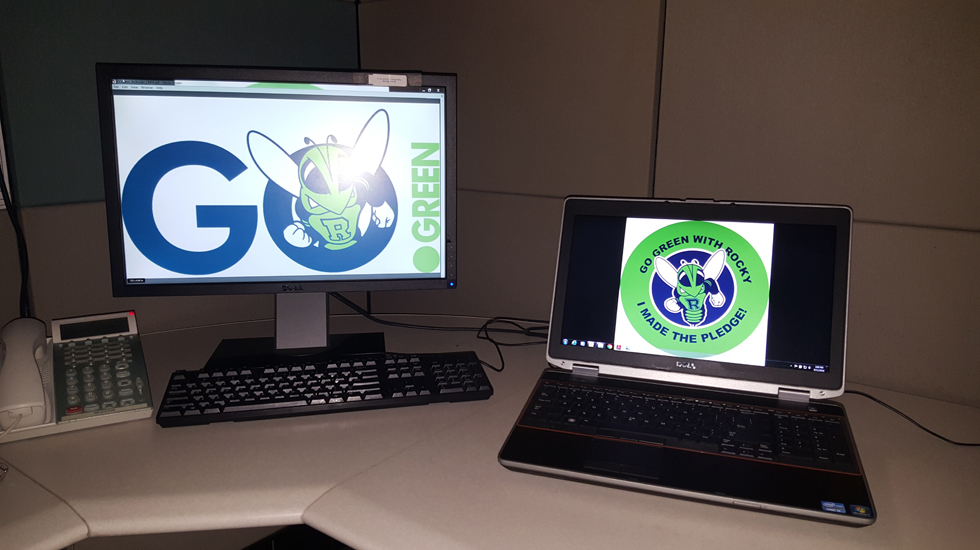It goes without saying that computers have become an integral part of many of our lives. In fact, most of today’s office and academic work centers around the work we do on our computers or on other screened electronic devices. With classes just round the corner and all offices going into full swing, the following tips should help you become more sustainable with regard to your computer use.
- Dim your screen- it’s a little known fact that the computer screen is one of the largest consumers of electricity within a computer system. Dimming your screen helps conserve energy that is otherwise used to brighten your screen.
- Apply darker themes and backgrounds- similar to the concept of dim screens, dark colored themes require less energy to be sustained than vivid and colorful themes.
- Close unnecessary pages, folders and files– every page you open on the internet draws upon more memory from your computer and of course, this requires more energy. Be sure to close all unnecessary browsers and programs to optimize your power use.
- Apply strict power saving settings- features such as “Sleep” and “Hibernate” mode drastically reduce the amount of power used by your computer system. Change these settings to come on after the least amount of inactive time possible.
- Swap screen-savers for sleep modes- instead of applying active screen-savers during periods of inactivity, apply conservative sleep settings instead. This is the most efficient way of saving power.
- Make use of pre-installed power optimization software(s)– most new laptops come with pre-installed software that optimizes power use. Be sure to check if such software exists on your computer and enable it if it does.
- Reduce the number of active background processes– computers are complex systems that require many active processes to function. Most of these processes run in the background and some of them are unnecessary. Be sure to close all unnecessary background processes or install optimization tools that do this for you. Also, disable all unnecessary Startup Programs that run automatically when you turn on your computer.
- Keep your computer cool- most computers are equipped with an internal fan that keeps the internal components within a specific temperature range. As such, the higher the temperature of the computer’s external environment, the more the fan has to work to keep the device cool, which requires more energy. Therefore, try to operate your computer in a cool environment and avoid placing it on heat conducting surfaces e.g. pillows, bedding, carpets etc.
*Pro-tip from the University IT Center– It is highly recommended that you completely shut down your computer at least once a week. This will allow the system to install updates and reboot completely, ultimately increasing the performance and longevity of you computer.
Also, if you are trying to purchase a new laptop/computer, be sure to look for the highest-rated, Energy Star certified products. Such products designed to be more energy efficient and will save you money in the long run.
Written by Adil Nyambasha, Class of 2018

